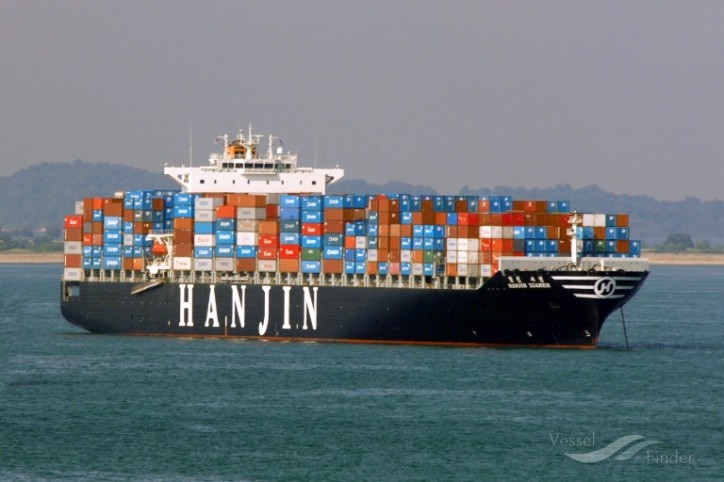Hanjin Shipping filed an appeal Monday after an American fuel company seized one of its vessels docked in Korea over the weekend, the first domestic seizure since the company fell under court receivership last month, despite the bankruptcy court’s stay order prohibiting creditors from seizing ships in Korean waters.
The Hanjin Xiamen, docked in Changwon, South Gyeongsang, was seized by World Fuel Services on Friday after obtaining rights from the Changwon District Court. Hanjin Shipping had outstanding fuel payments on the ship owed to the American company.

Container ship Hanjin Xiamen - Image courtesy: mgklingsick
Hanjin Shipping filed an appeal to the district court Monday, and the result is expected to come by Thursday.
Although the stay order was supposed to protect Hanjin assets from being seized by creditors, World Fuel Services argued the ship was not technically “owned” but “beneficially owned” by Hanjin Shipping, as it was borrowed from a special purpose entity established in Panama by the shipping line. Thus, World Fuel Services said the ship could not be considered a Hanjin asset.
Korean shipping companies often establish special purpose entities overseas to help finance the purchase of a new vessel. They then borrow the vessel from the paper company until ownership is completely transferred to the shipping line. Until then, the vessel is considered beneficially owned by the shipping company.
Generally, the beneficial owner, in this case Hanjin Shipping, would be charged with all the benefits and obligations attached to the vessel.
But since the bankruptcy court did not specifically state that beneficially-owned ships were subject to the stay order, the district court in Changwon interpreted the order narrowly and said the Hanjin Xiamen belonged to the owner on paper, not Hanjin.
"In the stay order imposed by Singapore, it includes beneficially-owned ships as subject to the order,” said Kim In-hyeon, a professor at Korea University Law School. "We can’t say the court’s ruling is wrong, but it seems the court was too considerate of the creditor’s position.”
As of Sunday night, 64 out of Hanjin’s 97 container ships have completed unloading of their cargo, according to the Ministry of Oceans and Fisheries. Of the 33 remaining ships that need to unload cargo, 18 are scheduled to dock at Korean ports.
The company’s biggest concern now is the possibility of more seizures as the majority of Hanjin-owned vessels were financed through special purpose entities. Other creditors may request provisional seizures on remaining ships using Friday’s case as a precedent.
Source: Korea Joongang Daily